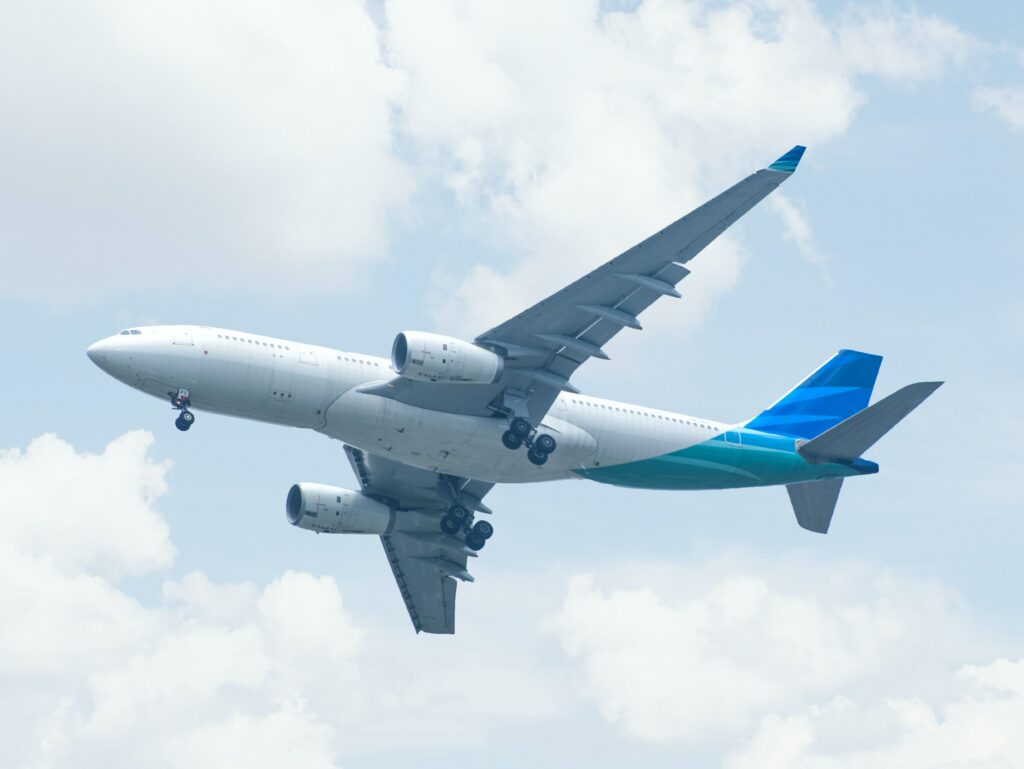
Airline and travel rewards credit cards are financial tools designed for individuals who frequently travel or would like to benefit from their everyday expenses by earning travel-related rewards. Simply put, for every dollar you spend using these cards, you earn points or miles that can be redeemed for various travel benefits.
What sets these cards apart from regular credit cards or even other rewards cards is their unique appeal: travel. While some credit cards might offer cash back or points to be redeemed for merchandise, airline and travel cards specifically target individuals with their sights set on traveling the world. Whether it’s flying for free, upgrading your flight seat, or enjoying a comfortable stay in a nice hotel without paying the hefty price.
How Airline and Travel Rewards Credit Cards Work

Airline and travel rewards credit cards operate on a simple principle: for every dollar you spend, you accumulate points or miles. However, the mechanics of how these points accrue, and their potential use, can differ based on the card type and issuer. Let’s take a deeper look into the workings of these cards:
- Earning Points/Miles for Purchases: At its core, every purchase you make on your card earns you points or miles. The rate at which you earn can vary. For instance, some cards may offer 2 miles per dollar spent on dining or 3 points for every dollar spent on travel. Often, there are promotions or specific categories where you can earn additional points, maximizing your rewards.
- Co-branded Airline Cards vs. General Travel Rewards Cards: Co-branded airline cards are partnered with specific airlines. With these cards, you might earn more points when booking flights directly with the affiliated airline, and your rewards might be tailored to that airline’s services, like priority boarding or free checked bags. General travel rewards cards, on the other hand, are not tied to any specific airline. They offer flexibility in earning and redeeming points across various airlines and hotels, often without blackout dates.
- Redemption of Points/Miles: Once you’ve amassed enough points or miles, you can redeem them for your travel-related benefits. This might include booking flights, reserving hotel rooms, upgrading your flight class, or even renting a car. The value of your points or miles can fluctuate based on several factors, including the time of booking, the travel destination, or the card issuer’s specific policies.
- Travel Portals Provided by Credit Card Issuers: Many credit card companies offer exclusive online travel portals for their cardholders. These platforms allow users to search for flights, hotels, and rental cars, often with the added benefit of special deals or boosted point values. Booking through these portals can sometimes stretch the value of your points further than booking directly through an airline or hotel.
In summary, while the foundational idea of earning rewards for spending remains consistent, the nuances of airline and travel rewards credit cards cater to the varied preferences and needs of the traveler. Whether you’re loyal to a particular airline or value flexibility in your travel plans, there’s likely a card designed with you in mind.
Benefits of Using Travel Rewards Cards
Travel rewards credit cards, at first glance, might seem like just another credit card to add to your wallet. However, their potential perks and advantages can make them an invaluable tool for both frequent flyers and occasional travelers alike. Let’s explore some of the most noteworthy benefits:
- Potential for Free or Discounted Travel: One of the most compelling advantages of these cards is the opportunity to travel more without burning a hole in your pocket. As you spend and earn points or miles, you accumulate the potential for free flights, hotel stays, or even vacation packages. Over time, consistent use can translate to significant savings, allowing you to indulge in that dream vacation or make more frequent trips without the associated cost burden.
- Exclusive Travel Perks: Holding a travel rewards card can feel like holding a VIP ticket to the world of travel. Depending on the card, you might enjoy luxuries like access to serene airport lounges, priority boarding (skipping the regular queues), and waivers on fees for checked bags. These perks not only offer monetary value but also enhance the overall travel experience, making journeys smoother and more comfortable.
- Bonuses Like Global Entry or TSA Pre✓® Fee Credits: Some travel rewards cards provide credits for application fees associated with Global Entry or TSA Pre✓®, expediting your airport security processes. Not only does this save you money upfront, but it also means less time in lines and a more streamlined airport experience.
- Flexibility in Using Points: The versatility of travel rewards cards is another notable benefit. While the primary aim might be to redeem points for flights or hotel stays, many cards allow you to use points for various other travel-related expenses, from car rentals to excursions. This flexibility ensures that even if you aren’t flying frequently, your points can still provide tangible value in other areas of your travel itinerary.
In a nutshell, travel rewards cards go beyond just earning points. They offer a suite of benefits designed to elevate your travel experience, making journeys more affordable, comfortable, and efficient. For those bitten by the wanderlust bug or those traveling for work, these cards can be a game-changer.
Pitfalls and Things to Consider
While travel rewards credit cards come packed with enticing benefits and the allure of free flights and hotel stays, it’s crucial not to get carried away by the shiny perks without understanding potential downsides. Here’s a rundown of some potential pitfalls and aspects you should consider:
- Reading the Fine Print: It might be tempting to skim through the terms and conditions, but details matter. Some cards have blackout dates during which you can’t redeem your rewards. Others might have points that expire if not used within a certain timeframe. Understanding these specifics can prevent disappointment later and help you maximize your card’s benefits.
- Annual Fees: Many travel rewards cards come with annual fees. While some fees can be easily justified by the card’s benefits, such as free annual travel credits or large signup bonuses, others might not offer enough value for their cost. It’s crucial to weigh the fee against the benefits you’ll realistically use to determine if the card is worth it for you.
- Risk of Overspending: The allure of earning more points can sometimes lead to unnecessary spending. It’s vital to remember that spending money to earn rewards only makes sense if you’re buying things you would have purchased anyway. Spending excessively with the aim of earning points can lead to mounting debt, negating any benefits you might gain from the card.
- Foreign Transaction Fees: For those who frequently travel internationally, it’s essential to be aware of foreign transaction fees. Some cards might charge you a percentage of each purchase made outside your home country. Over the course of a trip, these fees can add up. If you’re a regular international traveler, consider cards that waive these fees.
In essence, while the promise of travel rewards cards is undeniably attractive, it’s imperative to approach them with a balanced perspective. By being informed and cautious, you can maximize benefits while minimizing risks, ensuring that your credit card journey is both rewarding and financially sound.
Tips for Maximizing Travel Rewards
Making the most out of your travel rewards credit card requires a bit more than just swiping it for purchases. With the right strategies and insights, you can supercharge your rewards and enjoy more free trips and perks. Here are some tips to maximize your rewards:
- Leverage Sign-Up Bonuses: One of the quickest ways to rack up a substantial amount of points is by qualifying for the card’s sign-up bonus. Ensure you meet the spending requirement within the stipulated timeframe to unlock these bonus points. This initial boost can sometimes cover the cost of a round-trip flight or more.
- Prioritize Travel-Related Expenses: If your card offers extra points for travel-related expenses, make it your go-to for booking flights, hotels, and even rental cars. This concentrated spending can help you accumulate rewards faster.
- Loyalty vs. Diversification: While staying loyal to one airline or hotel chain can lead to higher-tier status and better perks, it’s also worth considering the benefits of diversification. Spreading your spending across various brands can give you more options and flexibility, especially if a specific airline doesn’t fly to your desired destination.
- Regularly Check and Redeem Points: Letting your rewards sit unused can be a missed opportunity, especially if they have an expiration date. Regularly review your points balance and consider the best redemption options, whether it’s flights, hotel stays, or even experiences.
- Pair With Other Rewards Cards: Combining a travel rewards card with another type of rewards card, like a dining or gas card, can be a winning strategy. This approach allows you to earn maximum points on different categories of spending.
Conclusion
Travel rewards credit cards are a gateway to a world of travel benefits, from free flights and hotel stays to exclusive perks that can make your trips more enjoyable. However, the true value of these cards isn’t just in their potential rewards but in how effectively you use them. By staying informed, strategizing your spending, and regularly checking your rewards, you can journey towards becoming a travel rewards pro.




